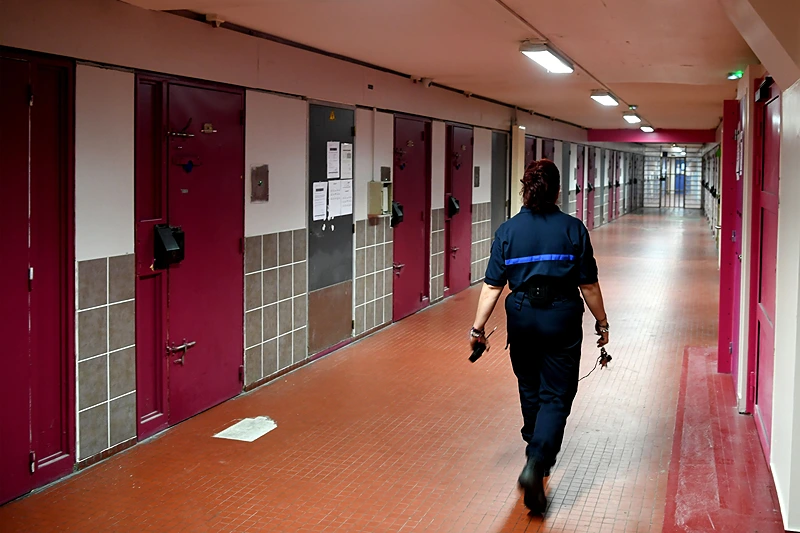
OAN’s Brooke Mallory
3:03 PM – Monday, June 5, 2023
New scientific evidence has recently emerged that allegedly proves that the deaths of an Australian woman’s four children occurred due to natural causes, as she had claimed prior, leading to her pardon and release on Monday.
She had already served twenty years in prison for the accused crimes.
The second investigation into Kathleen Folbigg’s culpability was expected to provide a final report that would suggest the state Court of Appeals vacate her convictions, therefore the pardon was viewed as the fastest method to release her from incarceration.
Folbigg, now 55, was freed from a Grafton, New South Wales, prison as a result of Gov. Margaret Beazley’s unconditional pardon.
Australian state governors are symbolic figures who carry out government directives. Former Justice Tom Bathurst reportedly told Michael Daley, the attorney general of New South Wales, this week that there was cause for concern regarding Folbigg’s guilt, given fresh scientific data suggesting that the deaths could have resulted from natural causes.
“There is a reasonable doubt as to Ms. Folbigg’s guilt of the manslaughter of her child Caleb, the infliction of grievous bodily harm on her child Patrick and the murder of her children Patrick, Sarah and Laura,” Daley told the press. “I have reached a view that there is reasonable doubt as to the guilt of Ms. Folbigg of those offenses.”
Bathurst launched a second inquiry into Folbigg’s guilt, initiated by a petition that declared it was “based on significant positive evidence of natural causes of death” and signed by 90 scientists, medical practitioners and other specialists in the field.
Prosecutors acknowledged his inquiry in April that there was reasonable doubt regarding her culpability.
Folbigg had been serving a 30-year prison term that was set to expire in 2033. She would have become eligible for parole in 2028.
Her four children had passed away individually over a span of a decade, between 19 days and 19 months old.
Folbigg’s first child, Caleb, was born in 1989 and died 19 days later in what a jury judged to be the lesser crime of manslaughter. Her second child, Patrick, was 8 months old when he died in 1991. Two years later, her daughter Sarah died at 10 months old. In 1999, Folbigg’s fourth child, Laura, also died at 19 months old.
Evidence obtained in 2018 showed both daughters carried an uncommon CALM2 genetic variation, which was one of the reasons that the inquiry was launched.
Attorney Sophie Callan said “expert evidence” in the fields of genetics and cardiology had indicated that the CALM2-G114R genetic mutation “is a reasonably possible cause” of the daughters’ premature deaths.
Myocarditis, which is caused when inflammation develops in the myocardium, or middle muscular layer of the heart wall, was also a “reasonably possible cause” of Laura’s death, Callan said.
“Myocarditis can weaken the heart and its electrical system. As a result, the heart’s ability to pump blood declines. The condition may be acute and resolve quickly,” according to the American Heart Association.
For Patrick, Callan stated there was “persuasive expert evidence that as a matter of reasonable possibility, an underlying neurogenetic disorder” caused his sudden death.
The scientific data generated further doubt that Folbigg purposely killed her three children and also weakened the argument made in Caleb’s case that four children’s deaths were an improbable coincidence, Callan added.
Prosecutors had told the jury at the trial that the commonalities among the deaths made coincidence an implausible explanation.
Folbigg had been the only one at home or awake when the young children passed away. She said she discovered three of the deaths during trips to the bathroom and one while checking on her child’s wellbeing.
Additionally, prosecutors also alleged to the jury that Folbigg’s personal journals contained admissions of guilt.
Her ex-husband, Craig Folbigg, argued in statements to the case inquiry that the implausibility that four children in one family would all die of natural causes before the age of 2 was strong grounds to continue seeing the journal entries as admissions of his former wife’s guilt.
However, Callan said psychologists and psychiatrists offered evidence that it would be “unreliable to interpret the entries in this way.” Folbigg had been suffering a significant depressive disorder and “maternal grief” at the time when she made the postings, Callan claimed.
Stay informed! Receive breaking news blasts directly to your inbox for free. Subscribe here. https://www.oann.com/alerts

